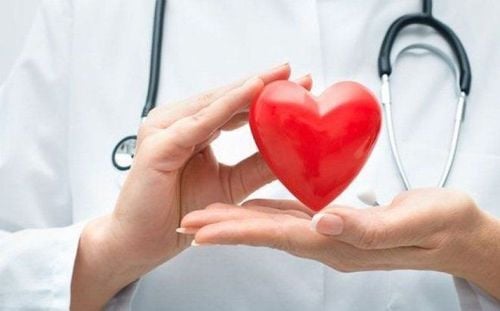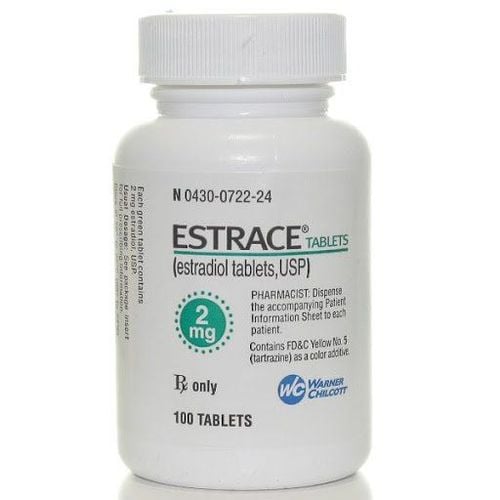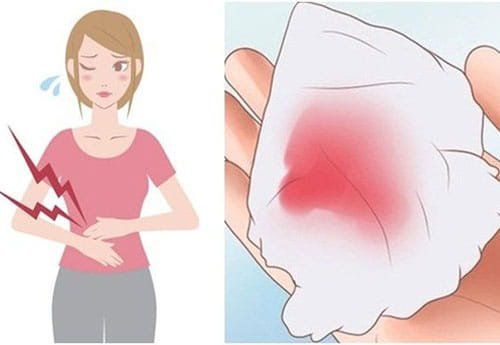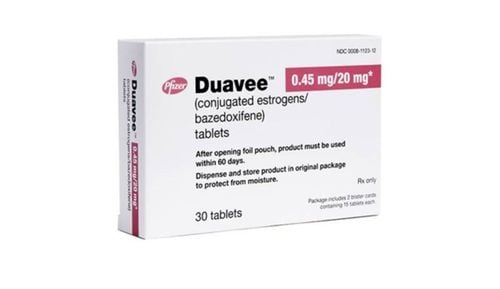This is an automatically translated article.
The article is professionally consulted with Master, Doctor Le Nhat Nguyen - Doctor of Obstetrics and Gynecology - Department of Obstetrics and Gynecology - Vinmec Danang International General Hospital.Menopause is a natural physiological phase of a woman, presenting a permanent cessation of menstruation after the ovaries stop secreting estrogen and the woman cannot fight this phenomenon.
1. What is menopause?
Menopause is the second transitional period in a woman's sexual life (the first occurring during puberty) that occurs due to a decline in ovarian function, the gradual cessation of ovarian function and cessation of ovarian function. secretion of female hormones, leading to the cessation of menstruation each month and the cessation of a woman's fertility.Trắc nghiệm: Sự hiểu biết của bạn về kinh nguyệt
Kinh nguyệt có vai trò quan trọng đối với sức khỏe sinh sản, do đó nữ giới cần chủ động trang bị kiến thức để theo dõi và kiểm soát tình trạng sức khỏe. Bài trắc nghiệm sau đây sẽ giúp bạn hiểu hơn về chu kỳ kinh nguyệt của bản thân.2. The stages of menopause in women
A woman's menopause consists of three phases: perimenopause, menopause, and postmenopause. In the perimenopause stage, a woman's menstrual cycle is often disrupted, the function of the ovaries is increasingly weaker, the amount of estrogen in the body begins to decrease gradually leading to amenorrhea.Menopause is the period of complete cessation of menstruation and is usually around 45-55 years old, with an average age of 51 years. However, some people will have an early menopause, at about 35-40 years old or as late as 60 years old. At the end of this stage, the ovaries will shrink, fibrosis and lose endocrine function.
In the post-menopausal period, this is a period when women are very susceptible to diseases when a woman's ovaries are fibrosis, the body reduces a large amount of female hormones, causing many different diseases.

3. How long does it take for a period to be considered menopause?
Before menopause, a woman has 3 to 5 years in perimenopause where the amount of estrogen in the body begins to decrease. Research shows that menopause is well-defined when a woman has lost her period for a year with no apparent cause.However, during this one-year period, a woman is still capable of becoming pregnant. Therefore, when a period has just been missed for a few months in this period, it is not necessarily true menopause, women in this period need to carefully continue to prevent pregnancy for the next 12 months to avoid unwanted pregnancy. Although the possibility of getting pregnant during this period is very small, it is not impossible.
4. Signs that you are about to go through menopause
Before menopause, a woman has to go through perimenopause. The identification signs are as follows:Menstrual disorders: Menstrual cycle may stop suddenly or shorten, thin out, menorrhagia, heavy bleeding... Unstable menstrual cycle may be a sign of onset. early menopause. If bleeding is at this stage, women need to see a doctor to rule out endometrial cancer.
Dry eyes, mouth and skin: One of the most noticeable perimenopause symptoms is that your skin is gradually becoming dry, sagging, easily irritated, and thinning. The drop in estrogen levels is the cause of this condition.
Reduced fertility: Reduced fertility means it is harder to get pregnant and the fetus is more prone to abnormalities. However, women can still conceive for up to a year after completely stopping menstruation. In this age group, due to genetic changes in ovarian follicles, older mothers have a high chance of giving birth to children with genetic disorders, especially children with Down syndrome. Therefore, doctors do not encourage older women to become pregnant. It is best to use effective birth control.
Vasomotor disorders: Hot flashes, intermittent sweating, arrhythmia are most common. These signs of dysgeusia can occur several years before menopause and continue for many years.
Osteoporosis: This is a systemic disease, hormone deficiency, bones become porous, thin and brittle, so it is easy to break. This is also the reason why elderly women are susceptible to hospitalisation, disability, and even death.
Cardiovascular disease: Female hormone is very effective in eliminating harmful fats in the blood and keeping the elasticity and softness of the vessel walls. Before menopause, women are less likely to have cardiovascular diseases because the ovaries are still functioning well. Ovarian decline, endocrine deficiency, and loss of valuable protective factors make menopause an independent cardiovascular risk factor in older women.
Types of female genital cancer: Cervical, ovarian, breast cancer often appear in menopause. Doctors advise women in this age not to forget to have regular gynecological and breast exams to screen and diagnose gynecological cancers at an early stage.
Reduced memory, problems with concentration: Menopause also affects language skills and other functions related to memory. This is why when you go through perimenopause and your estrogen levels drop, you can have trouble remembering new information or retrieving what's already in your head. Another reason for memory problems is that the insomnia of perimenopause makes you tired, affecting your ability to concentrate and remember.

5. Prevention of Post-Menopausal Disorders
After menopause, a variety of chronic diseases tend to appear. You need to understand medical conditions to take steps to prevent and control them. Therefore:Menopausal women need to have a regimen of activities, rest, and good nutrition as soon as they enter the perimenopausal stage. Also eat plenty of vegetables, especially soy or alfalfa products, and foods high in Calcium, Vitamin D, Omega-3 and Omega-6. Regular exercise is required to maintain the flexibility of the musculoskeletal system. During sex, lubricants can be used to relieve pain because of vaginal dryness. Gynecological examination every 6 months for early detection and treatment of gynecological diseases. Supplement with calcium, vitamin D and vitamin E pills every day. At Vinmec International General Hospital, there is a package of pre-menopausal health examination and counseling. When registering for an examination package, customers will be examined and consulted with a specialist in Gynecology; Perform tests to evaluate hormone status. When registering for the pre-menopausal health care package and consultation package, customers will receive:
Specialized gynecological examination Gynecological examination, breast examination Transabdominal ultrasound of the uterus and ovaries Taking samples as a chart Cervical-vaginal cytology Mammogram (2 sides) Osteoporosis Measure other tests to detect pre-menopausal conditions, if any.
Please dial HOTLINE for more information or register for an appointment HERE. Download MyVinmec app to make appointments faster and to manage your bookings easily.














